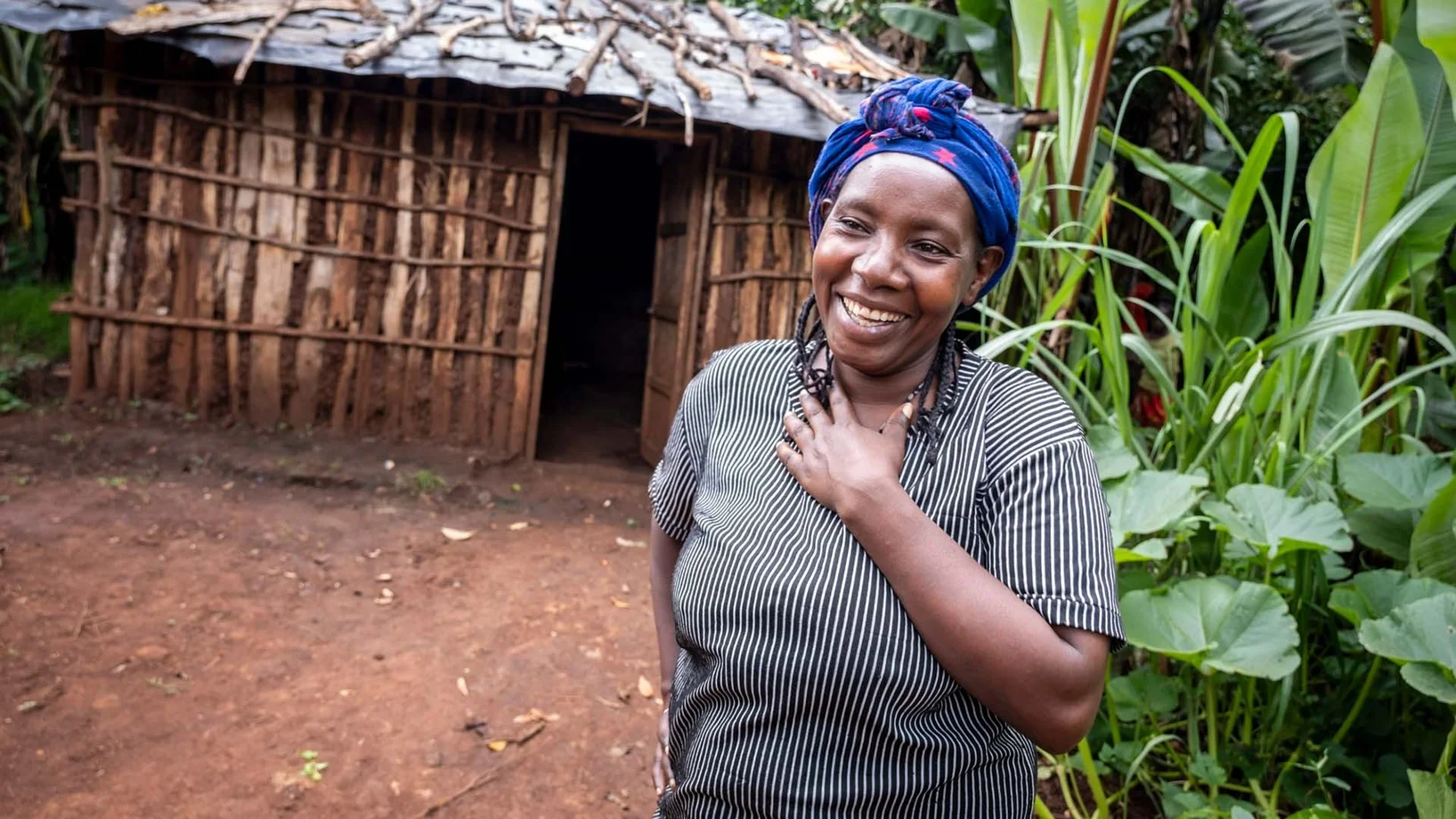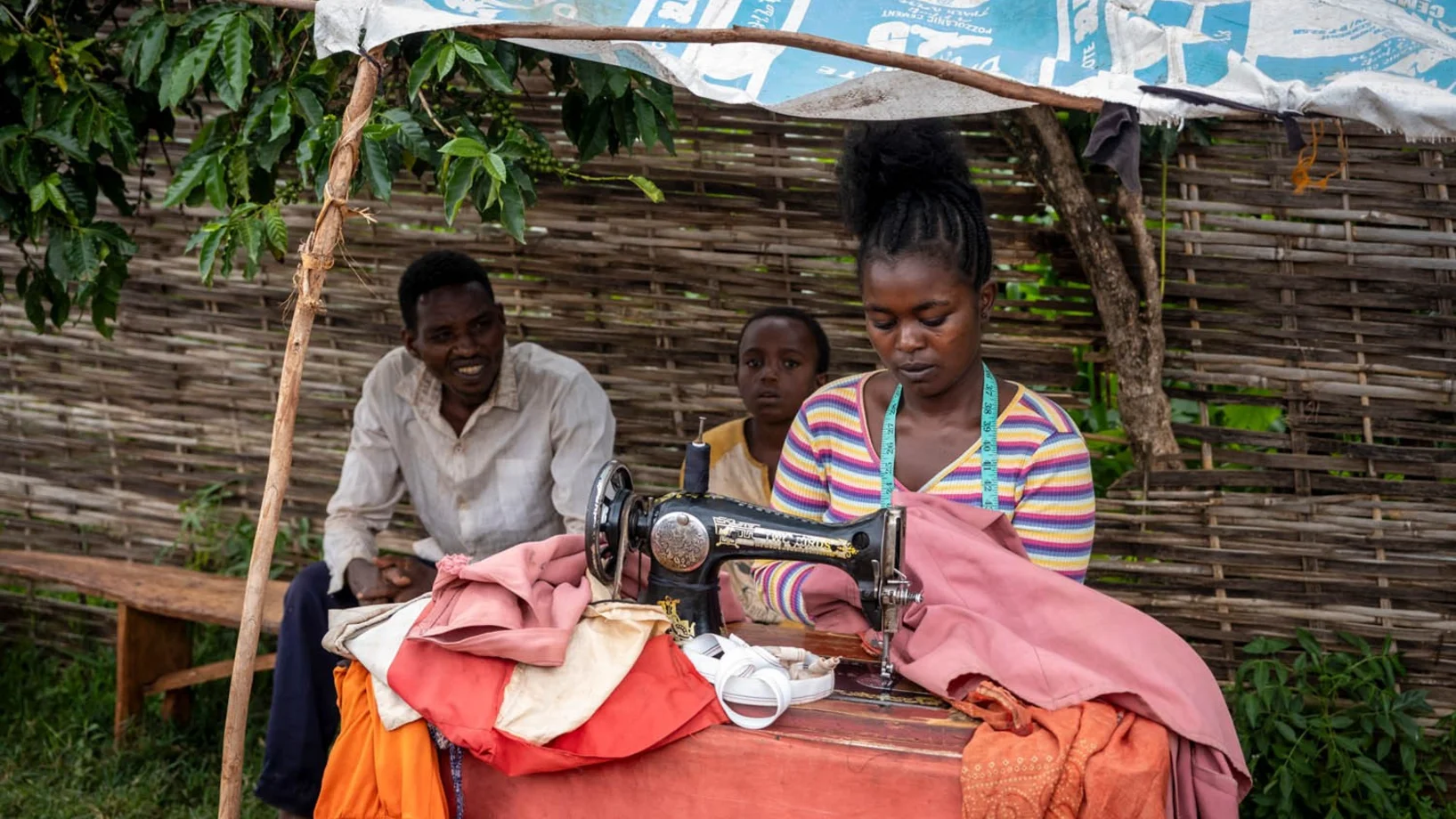Eskedar Minzibel, 26, has two one-year-old twin daughters and lives in Ethiopia's capital Addis Ababa. Menschen für Menschen has included her children in the nutrition program for malnourished young children . Here Eskedar tells her story.
Begging is difficult. Because you have to look people in the eye. No one should believe that I enjoy doing it. And no one should believe that I will do it for long. I have an education. I am self-confident. I will live differently in the future.
But right now it is what it is: I go to the forecourts of churches with my twins and ask the churchgoers for money. That is the only way we can pay the rent for our room, buy food, and survive.
My girls are called Afomia and Meba. They are one year and three months old. When they were newborns, people gave me more money than they do now.
We haven't been in Addis Ababa for long, one and a half years. When I was pregnant, we decided to leave our village in the Godjam region in the west of the country and move to the capital. We thought we would have better opportunities here.
My husband was a day laborer. We don't have our own land. We rented a piece of land. The traditional agreement is that the tenant gives half of the harvest to the owner of the field. That's a lot. We grew peperoncino. But there was a bad harvest. So we had nothing in our hands.
And then the nurse at the health center told me during the prenatal check-up that I was expecting twins. "Perhaps it would be better for you in the city," she said. We thought she was right. There are no real jobs in our village and our district. That is the main problem. Because I actually have a degree. I went to a TVET, a vocational school, and did a four-year training course in mechatronics. But of our class of 27 graduates, only four people found jobs. I was only able to cover for a woman who had had a child for a few months. But not in a job that matched my training, only as an unskilled worker in packaging. That was in a lemonade factory. There is also a soap factory in our district. Otherwise there is no industry. The competition for the few jobs is fierce.
So we decided to go into town. We took the bus and it felt like we were driving straight into the darkness. I was that scared. We found an expensive room in town and paid 4,000 Birr a month for it (Editor's note: At the time of the conversation with Eskedar, that was around 61 Swiss francs - about the monthly salary of a young teacher in Ethiopia) .
I gave birth to my children here in the city. My husband has no education, he tries to earn money as a shoeshine boy. It's never enough, even though we only eat two meals a day. That's why I speak to people in front of the churches and ask them for money.
I love my husband. He loves me. But we still argue. Because of our poverty. Because we don't have enough money for a decent life.
The food from Menschen für Menschen is a relief. Since we have been receiving the monthly rations, my children have been gaining weight.
Right now I'm just a mother, but in the long run my education will be beneficial to me. I'll apply for jobs, maybe even those that are below my level of education at first. I'll stick with it, take courses, continue my education. I have hope of having a good life one day.
Childhood without hunger: Our nutrition program
WHY WE HELP:
The children in the poorest families in Ethiopia suffer from hunger. This stunts their physical and mental development and weakens their immune systems. This quickly becomes life-threatening. It happens that small children up to the age of three die.
HOW WE HELP:
- Food: We provide the mothers with food aid, mainly a protein-rich flour made from grains and pulses. The mothers can use this to cook a particularly nourishing porridge. After six months at the latest, their children are of normal weight. Then we take other malnourished children into our nutrition program.
- Knowledge: We organize weekly community meals with healthy food. The children get milk and vegetables, among other things. At the same time, we teach the mothers. They learn how to use their little money to provide their children with a balanced diet.
- Vocational training: Mothers also have the opportunity to complete a six-month training course in home economics. With the qualification, they have good chances of getting a job in hotels and restaurants. Or they can start their own business with a snack stand.
WHAT WE DO:
Our food helps 300 children a year to escape acute hunger – our teaching ensures their healthy development in the long term.
Give the gift of a childhood without hunger!
With 75 francs, you can provide a malnourished child with nutritional supplements for three months.
With 150 francs, you can ensure that a child does not experience hunger for six months and can develop healthily in the long term.















